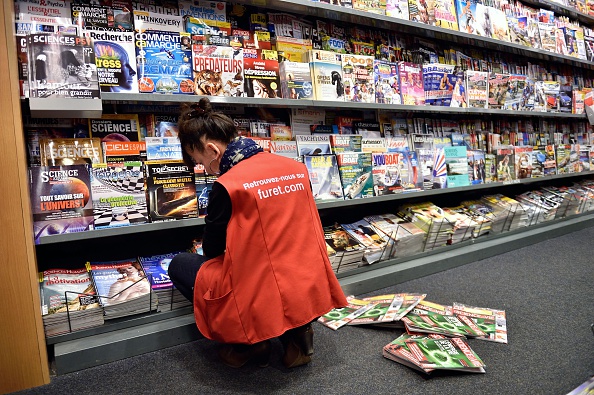Shares in media firm Future surge as it raises full-year forecasts

Shares in Future rose more than 10 per cent this morning after the media firm said it forecasts full-year results ahead of expectations.
Future previously lifted its forecasts after strong trading in the first half of the year, as a string of major acquisitions drove a record rise in revenue and profit.
Read more: Shares in media group Future jump as acquisitions fuel record half-year results
But the FTSE 250 firm, which owns magazine titles including Four Four Two and Tech Radar, today said its run of good form has continued and forecast full-year results ahead of consensus.
Future said the positive performance was driven by good audience growth in its media division, as well as strong underlying trading from its recent acquisitions.
The Bath-headquartered company also announced that chief financial officer Penny Ladkin-Brand will step down from her current role and from the board at the beginning of next year, when she will start in her new position of chief strategy officer.
Future said it has begun the search for a new finance director and aims to have a successor in place by the end of the calendar year.
“I am delighted that Penny will remain a part of Future’s leadership team, as we continue to deliver our strategy to build a global specialist media platform driven by technology,” said chief executive Zillah Byng-Thorne.
“Penny has made a significant contribution to the development of Future over the past four years and has steered the business through a period of substantial growth and progress.”
Future, which was founded by Ted owner Chris Anderson in 1985, has embarked on an aggressive expansion plan in recent months as it looks to grow its market share in the US.
Russ Mould, investment director at AJ Bell, said Future was “on the comeback trail”.
Read more: Future snaps up Cycling News and Procycling Magazine from Immediate Media
“Newspaper and magazine publishers continue to battle falling sales and have struggled to get readers to pay for their relatively generic content, but consumers have shown a greater willingness to pay for specialist and niche content which they are unable to get elsewhere,” he said.
“Future needs to get the balance right between making money out of the hobbyists who read its publications and ensuring they don’t feel exploited.”